survival horror
Alan Wake
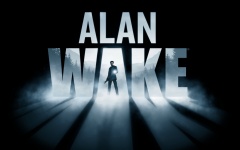 Alan Wake has been a long time coming. After Max Payne 2 released in
2003, Remedy has
used the majority of their resources for this game. Originally
announced in 2005, it
has naturally undergone significant revisions. Once a freeroaming
affair, Alan Wake is now almost entirely linear. Instead of releasing
on consoles
and PC, Remedy ended up partnering with Microsoft for an exclusive 360
release. As one would expect from a partnership, the game got bigger
and bigger and eventually ended up being a high-profile, big-budget
release when it finally hit in May 2010. Such a big game for a small
company would carry with it many risks and increasingly impatient
onlookers. Is the survival-horror tale worth the wait in the end?
Is the Alan Wake concept still relevant and contemporary enough several
years
later? Most importantly, is the game good and does it work? Let's take
a dive into the darkness...
Alan Wake has been a long time coming. After Max Payne 2 released in
2003, Remedy has
used the majority of their resources for this game. Originally
announced in 2005, it
has naturally undergone significant revisions. Once a freeroaming
affair, Alan Wake is now almost entirely linear. Instead of releasing
on consoles
and PC, Remedy ended up partnering with Microsoft for an exclusive 360
release. As one would expect from a partnership, the game got bigger
and bigger and eventually ended up being a high-profile, big-budget
release when it finally hit in May 2010. Such a big game for a small
company would carry with it many risks and increasingly impatient
onlookers. Is the survival-horror tale worth the wait in the end?
Is the Alan Wake concept still relevant and contemporary enough several
years
later? Most importantly, is the game good and does it work? Let's take
a dive into the darkness...
Penumbra: Overture
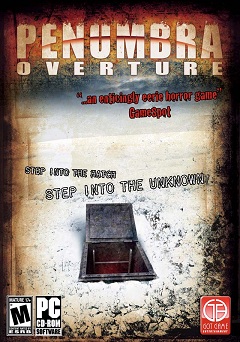 Atmosphere. Danger. Environment. Expectation. These words are
integral to any sort of horror-based media, and yet many have
seemingly forgotten all about the reasons behind fear and instead rely on cheap tactics to do
the job. Penumbra: Overture shows a much more sophisticated ability to
keep players on edge without relying on grotesque visuals and cheap
'jump moments' to elicit responses. I was particularly curious as to
how this game could effect me since I'm not easily frightened and cheap attempts at fear usually seem more humorous
than scary. And overall, the game does a fairly good job at its goals.
Let me explain.
Atmosphere. Danger. Environment. Expectation. These words are
integral to any sort of horror-based media, and yet many have
seemingly forgotten all about the reasons behind fear and instead rely on cheap tactics to do
the job. Penumbra: Overture shows a much more sophisticated ability to
keep players on edge without relying on grotesque visuals and cheap
'jump moments' to elicit responses. I was particularly curious as to
how this game could effect me since I'm not easily frightened and cheap attempts at fear usually seem more humorous
than scary. And overall, the game does a fairly good job at its goals.
Let me explain.
Overture almost takes advantage of those modern media shortcuts to create a fully engrossing experience with the capability to be legitimately frightening. As a response to these movies, shows, and games, your mind now expects something to happen when you travel down a dark hallway, into a new room, or when encountering an enemy. Instead, nothing typically happens in Penumbra. In fact, very little "happens" throughout the whole game. Almost all of the happenings and story events involve Phillip sorting out the past of his forgotten surroundings instead of building the story himself or primarily creating a story. At heart, Overture is a first-person adventure game, with the atmosphere as really the only major demarker to the survival-horror tag. I can recall only a handful of actual "events" Phillip was directly involved in. And yet this feels perfectly fine in the context of the game.
Penumbra: Overture
 Just in time for Halloween, we have a special first hour of Penumbra: Overture. Released in 2007 by indie developer Frictional Games,
Penumbra: Overture is the first in a trilogy that promises to be a
uniquely frightening experience. As part survival horror, part puzzle
solver and part first person shooter, initial previews evoke thoughts of
Half-Life 2 infused with terror, which is just fine with us. I've
heard great things about the game for a while, mostly from flattering
word-of-mouth. This is as good a time as any, after purchasing it from
the Humble Indie Bundle several months ago.
Just in time for Halloween, we have a special first hour of Penumbra: Overture. Released in 2007 by indie developer Frictional Games,
Penumbra: Overture is the first in a trilogy that promises to be a
uniquely frightening experience. As part survival horror, part puzzle
solver and part first person shooter, initial previews evoke thoughts of
Half-Life 2 infused with terror, which is just fine with us. I've
heard great things about the game for a while, mostly from flattering
word-of-mouth. This is as good a time as any, after purchasing it from
the Humble Indie Bundle several months ago.
For this first hour playthrough, we've trying something a bit different. I played through and recorded the initial first hour and then sent the video to Greg, who then watched and wrote what he saw and felt during the run. I was curious in seeing how his experience would differ from mine, especially since third-person impressions are so important to overall game opinion, especially when it comes to making purchasing decisions. So I'll hand this off to Greg (while adding some extra comments I deem appropriate) and then bring it back for the conclusion.
If you wish, you can follow along yourself with the provided Youtube videos. Apologies about the graphical and slight sound sync issues, but you can blame Youtube for those.
The QTE plague: What hath God of War wrought?
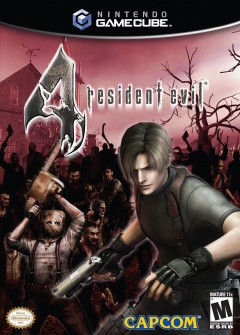 Quick Time Events. So many games have used them to some extent in the
last five years that just about every gamer has an opinion on them.
Mine is that they are the worst gameplay gimmick to take the industry by
storm in a long time, and I wouldn't mind seeing them all packed into a
burlap sack filled with leeches and thrown into the depths of a
volcano. They're tacky, they're unintuitive, and their attempts to
engage players in cinematic animations backfire and break the sense of
immersion one has with a game. And unfortunately for me, they're just
about everywhere these days.
Quick Time Events. So many games have used them to some extent in the
last five years that just about every gamer has an opinion on them.
Mine is that they are the worst gameplay gimmick to take the industry by
storm in a long time, and I wouldn't mind seeing them all packed into a
burlap sack filled with leeches and thrown into the depths of a
volcano. They're tacky, they're unintuitive, and their attempts to
engage players in cinematic animations backfire and break the sense of
immersion one has with a game. And unfortunately for me, they're just
about everywhere these days.
Two behemoths let loose in early 2005 can be thanked -- or blamed -- for the salvo of games that have featured QTEs in the last five years. The first, with a January 11 release date, was Resident Evil 4. The game was extremely well-received: it won many Game of the Year awards, offered a fresh take on the aging Resident Evil formula, and gave Gamecube owners a third-party exclusive worth bragging about. The other member of the gruesome twosome that brought us into the era of QTEs is known as God of War. Released just two months after Resident Evil 4, the game received just as many accolades and turned heads back to the PS2 as quickly as they'd been lost to the Gamecube's horror hit. Is it any wonder that the industry went in the direction it did when two such monumental successes as these both prominently featured a relatively unused gameplay gimmick?
Today we'll take a look at how the smart use of QTEs helped put these two games on the map, and watch a few examples of QTEs gone wrong. And trust me, there was a huge pool of resources for the latter.
Resident Evil
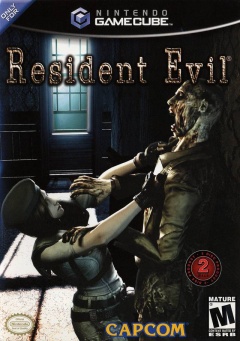 Resident Evil is the original survival horror game. It didn't invent horror, but it definitely laid some groundwork as far as the genre went in video games. It was originally released in 1996 for the Sony PlayStation. In 2002, it was released as a remake for the GameCube in a surprising deal that had the series on Nintendo's system and eventually led to the stellar Resident Evil 4. It is the GameCube REmake (get it, RE stands for Resident Evil? Ah, nevermind) that I will be playing.
Resident Evil is the original survival horror game. It didn't invent horror, but it definitely laid some groundwork as far as the genre went in video games. It was originally released in 1996 for the Sony PlayStation. In 2002, it was released as a remake for the GameCube in a surprising deal that had the series on Nintendo's system and eventually led to the stellar Resident Evil 4. It is the GameCube REmake (get it, RE stands for Resident Evil? Ah, nevermind) that I will be playing.
So what I want to know is this: Is this game good, and is this game scary? I've played Resident Evil 4, and had a few good jumps, but overall it was just a moody action game (arguably becoming the basis of the modern third-person shooter). The original (and remake) had a lot more focus on puzzle solving and exploring, and less on fighting.
I'm going all out with this one. I'm playing at night, while everyone else is sleeping, with the lights off. Let's see if we can get a good scare out of this.
Nintendo DS M-Rated Blitz
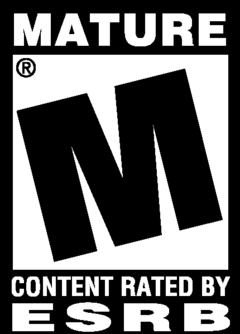 There are a total of six released M-rated Nintendo DS games: Grand Theft Auto: Chinatown Wars, theresia, Ultimate Mortal Kombat, Dementium: The Ward, Touch the Dead, and Resident: Evil Deadly Silence (one more game, C.O.R.E. has been rated but not released yet). For over 1100 rated titles on the Nintendo DS, there are just six games considered Mature by the ESRB! That's about one half percent of all DS games. Kotaku has some theories on this, but I'm not really one to analyze the market or audiences - I'm one to play the dang games.
There are a total of six released M-rated Nintendo DS games: Grand Theft Auto: Chinatown Wars, theresia, Ultimate Mortal Kombat, Dementium: The Ward, Touch the Dead, and Resident: Evil Deadly Silence (one more game, C.O.R.E. has been rated but not released yet). For over 1100 rated titles on the Nintendo DS, there are just six games considered Mature by the ESRB! That's about one half percent of all DS games. Kotaku has some theories on this, but I'm not really one to analyze the market or audiences - I'm one to play the dang games.
The following is going to be a 10 minute blitz of each of the six released M-rated games for the Nintendo DS, starting with the first released, Resident Evil: Deadly Silence, and finishing up with the recent Grand Theft Auto. I already had a friend review the first hour of Chinatown Wars, but a little overlap is okay. I'll say a few things about each game, play it for ten minutes, and then wrap each up with a few more notes about gameplay. I'll also decide if the first 10 minutes are worthy of the M-rating or not. Let's get this started.
This is also a taste of the new first hour review format. Less about numerical scores, more about what I liked and what I didn't. The reviews will be a bit more fleshed out next week as I have more room to roam. Enjoy.
